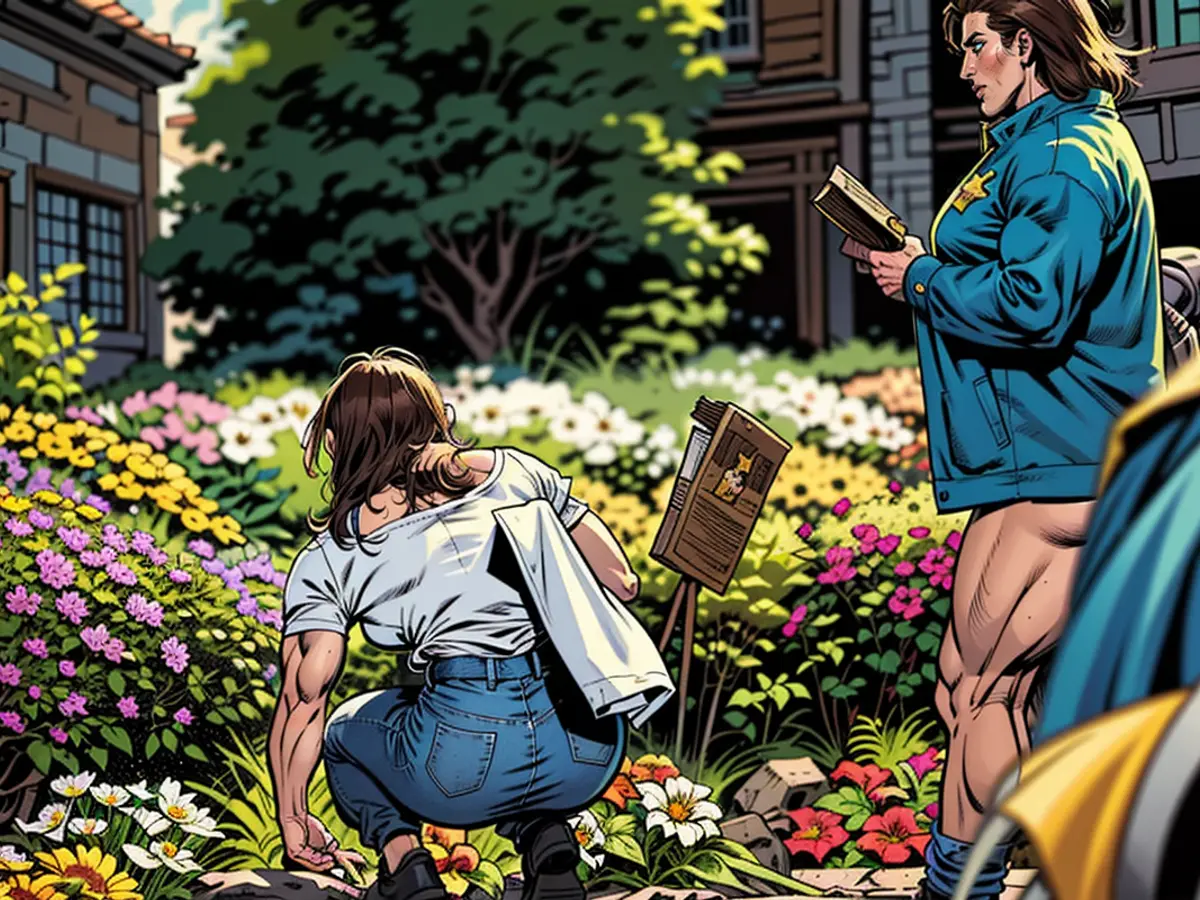- The unsettling times in Solingen
After a long day of wandering around the city, tiny candle flames flicker outside a church in Solingen, struggling not to be extinguished. It's surprisingly chilly, with a strong wind blowing, which is quite unusual for August. People continue to arrive and light new candles. And on a large sign, it reads "Why?"
Following a violent knife attack that claimed three lives at Solingen's diversity festival on Friday evening, the city and its approximately 160,000 residents have been affected in ways they never anticipated. It wasn't until late Saturday evening that a 26-year-old Syrian was taken into custody, thought to be the perpetrator. He was covered in blood.
At the crime scene, which is still sealed off, Philipp Müller stands on the following day, organizing an event that no longer exists. Müller played a role in the planning of Solingen's 650th anniversary celebration. That fateful Friday evening, he was called. He witnessed people being revived. He saw lifeless bodies.
Müller even described the gruesome images that haunted him throughout the day prior. Strangely enough, he managed to concentrate on organizing the event. Musical instruments were still set up on the stage where the attack took place. He hoped to return the instruments to the band. Even the stage lights were still on. "We suggested turning them off, but the police said no. It's a crime scene," Müller explained, acknowledging the importance of collecting evidence. However, he couldn't help but feel dismayed by the whole ordeal.
Solingen experienced a harrowing experience following the knife attack. For some time, the perpetrator remained undiscovered. There was no surveillance footage to assist in the investigation. The uncertainty surrounding his whereabouts contributed to the tense atmosphere.
On the very same night, North Rhine-Westphalia's Interior Minister Herbert Reul (CDU) arrived. Chancellor Olaf Scholz (SPD) demanded severe punishment for the perpetrator. Federal Interior Minister Nancy Faeser (SPD) arrived on Saturday, along with NRW Minister President Hendrik Wüst (CDU) and Interior Minister Reul again. She labeled the attack "disgraceful" and reiterated, "We will not allow ourselves to be divided in such times, but instead stand together and refuse to let an abhorrent attack drive a wedge between our society."
However, the community was plagued with more than just division. They also grappled with genuine concern about their safety. The authorities were unable to provide any reassurance to the anxious citizens. Had there been any secure, publishable images of the attacker? No. What could possibly have motivated such a heinous act? It was still unclear. Social media was ablaze with speculation.
Fearing division and a potential threat, other cities chose to cancel their festivals. Fear and anger pervaded Solingen. Many locals began to contemplate their own safety: Was the perpetrator still within the city? Or had he already fled? There were even some reports suggesting the latter.
Upon further investigation, the police discovered that the suspect surrendered on Saturday night, just a few hundred meters from the crime scene. In Solingen itself. He was not detained in Berlin, Hamburg, or abroad but in the heart of the city themselves.
As reported by "Der Spiegel," the suspect arrived in Germany at the end of 2022 and applied for asylum. These details were subsequently confirmed by the German Press Agency. His deportation unsuccessfully took place the previous year. The terrorist organization IS claimed responsibility for the act.
Anxiety and anger slowly began to spread through the city. "Solingen appears to be under the public spotlight frequently," one local resident remarked with resignation. Indeed, within the past few months, three tragic incidents occurred: the March fire in an attic apartment, allegedly set by a former tenant, the June explosion triggered by a man dropping a bottle containing a substance near a Solingen business, and the 1993 arson attack in which five Turkish women and girls were murdered by right-wing extremists.
None of these incidents should have marred the 650th anniversary celebrations. Instead, Solingen aimed to project a positive image, referring to itself as "The Blade City of Germany," due to its rich history in blade-making. The city is home to the "German Blade Museum." However, coping with recent events would prove a vast challenge.
Not only Solingen would be affected by these events, but it would also instigate nationwide political discussions. The frequency of knife attacks has recently prompted Interior Minister Faeser to propose tighter weapons laws. However, these proposals have yet to be fully accepted, with the FDP providing opposition. Additionally, state elections in Saxony and Thuringia are scheduled for the following week, with migration already a pertinent topic.
Festival organizer Philip Muller, frankly, isn't down for submission. When queried about the possibility of a celebration next year considering the latest happenings, he responds, "Absolutely, why not! You know the drill: After the party, before the party. I'm all metal here." He's now going to chat with everyone involved. "We'll figure out how to throw another bash here in August next year."
In the face of the challenges, Solingen/Locals continue to show resilience, with Philip Müller planning for next year's festival, stating, "Absolutely, why not! You know the drill: After the party, before the party. I'm all metal here."
Despite the recent tragedies, Solingen's annual Festival remains a significant aspect of the city's identity, with Müller determined to bring it back, declaring, "We'll figure out how to throw another bash here in August next year."








